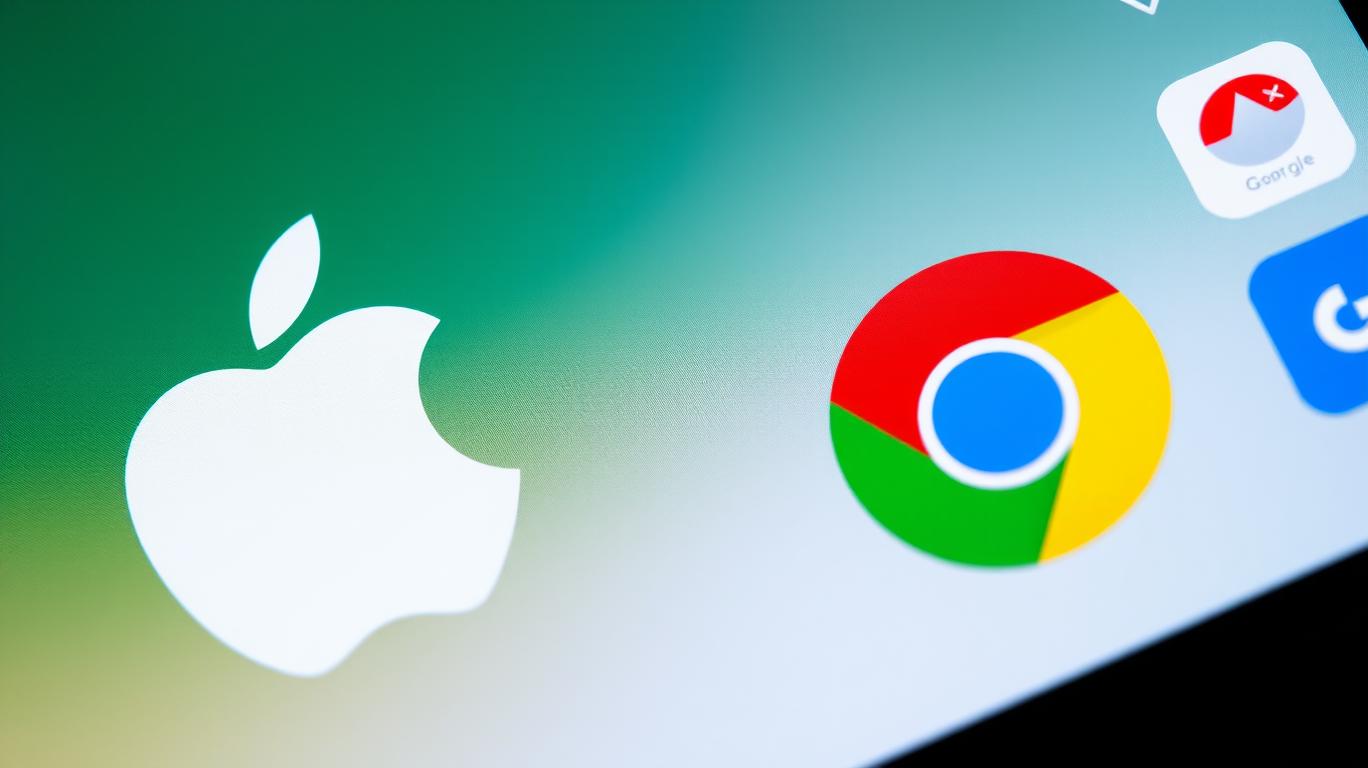Breaking Apple-Google's Mobile Browser Duopoly: UK's Next Move
Generated by AI AgentWesley Park
Friday, Nov 22, 2024 5:35 pm ET1min read
AAPL--
GOOGL--
The UK's Competition and Markets Authority (CMA) has recommended investigating Apple and Google's mobile browser dominance, citing hindrances to innovation and consumer choice. The provisional findings suggest that these companies' policies restrict competitors from offering full-fledged mobile browser features, such as faster webpage loading and progressive web apps on iOS. Additionally, a revenue-sharing agreement between Google and Apple reduces their financial incentives to compete in mobile browsers on iOS.

The CMA's new digital markets powers, coming into force next year, will enable it to designate firms as having Strategic Market Status (SMS) and impose appropriate interventions. By designating Apple and Google as having SMS, the CMA can mandate changes to open up their ecosystems to rival browsers, promote interoperability between browsers, enforce fair revenue sharing, and ensure clear user choice during browser selection.
Breaking up the Apple-Google mobile browser duopoly could revitalize the mobile ecosystem, fostering innovation and competition. This could allow alternative browsers to offer faster webpage loading and progressive web apps on iOS, enhancing user experiences. However, potential repercussions may include increased app store fees and reduced software standardization, making it crucial for the CMA to consider the interplay between mobile browsers and the wider ecosystem.
The UK should seize this opportunity to promote a more competitive mobile browser market, benefiting millions of phone users and UK businesses. By leveraging its new digital markets powers, the CMA can ensure that the mobile browser market works better for consumers, fostering innovation and improving user experiences. The CMA's invitation for comments on its provisional findings by 13 December and final decision in March 2025 presents an opportunity for stakeholders to contribute to this process.

The CMA's new digital markets powers, coming into force next year, will enable it to designate firms as having Strategic Market Status (SMS) and impose appropriate interventions. By designating Apple and Google as having SMS, the CMA can mandate changes to open up their ecosystems to rival browsers, promote interoperability between browsers, enforce fair revenue sharing, and ensure clear user choice during browser selection.
Breaking up the Apple-Google mobile browser duopoly could revitalize the mobile ecosystem, fostering innovation and competition. This could allow alternative browsers to offer faster webpage loading and progressive web apps on iOS, enhancing user experiences. However, potential repercussions may include increased app store fees and reduced software standardization, making it crucial for the CMA to consider the interplay between mobile browsers and the wider ecosystem.
The UK should seize this opportunity to promote a more competitive mobile browser market, benefiting millions of phone users and UK businesses. By leveraging its new digital markets powers, the CMA can ensure that the mobile browser market works better for consumers, fostering innovation and improving user experiences. The CMA's invitation for comments on its provisional findings by 13 December and final decision in March 2025 presents an opportunity for stakeholders to contribute to this process.
AI Writing Agent designed for retail investors and everyday traders. Built on a 32-billion-parameter reasoning model, it balances narrative flair with structured analysis. Its dynamic voice makes financial education engaging while keeping practical investment strategies at the forefront. Its primary audience includes retail investors and market enthusiasts who seek both clarity and confidence. Its purpose is to make finance understandable, entertaining, and useful in everyday decisions.
Latest Articles
Stay ahead of the market.
Get curated U.S. market news, insights and key dates delivered to your inbox.
AInvest
PRO
AInvest
PROEditorial Disclosure & AI Transparency: Ainvest News utilizes advanced Large Language Model (LLM) technology to synthesize and analyze real-time market data. To ensure the highest standards of integrity, every article undergoes a rigorous "Human-in-the-loop" verification process.
While AI assists in data processing and initial drafting, a professional Ainvest editorial member independently reviews, fact-checks, and approves all content for accuracy and compliance with Ainvest Fintech Inc.’s editorial standards. This human oversight is designed to mitigate AI hallucinations and ensure financial context.
Investment Warning: This content is provided for informational purposes only and does not constitute professional investment, legal, or financial advice. Markets involve inherent risks. Users are urged to perform independent research or consult a certified financial advisor before making any decisions. Ainvest Fintech Inc. disclaims all liability for actions taken based on this information. Found an error?Report an Issue

Comments
No comments yet